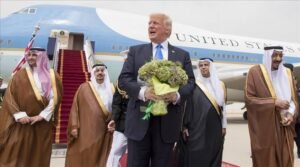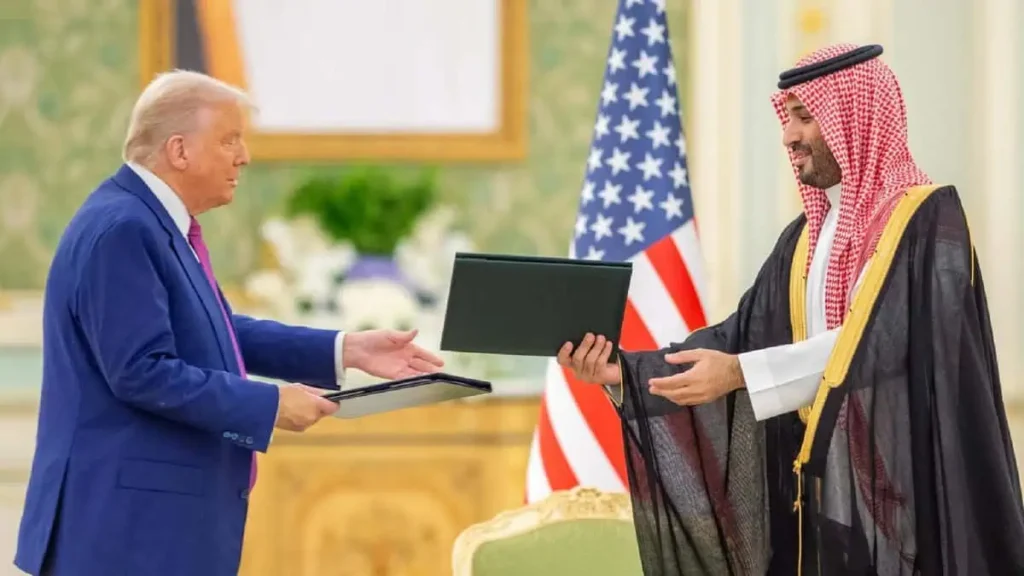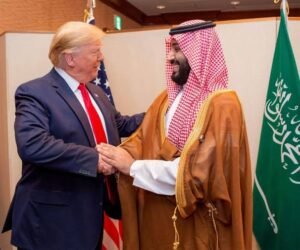Once known as a war machine, the United States now speaks the language of trade and strategic agreements. This transformation is not a coincidence it reflects a deep, gradual, and inevitable evolution in global politics. We now live in an age where balance sheets have replaced guns, and mega deals dominate headlines instead of missiles.
The recent \$600 billion agreement between the United States and Saudi Arabia is not just a business deal. It encompasses energy, defense, and technology and signals a significant shift in America’s long-term strategic objectives. This agreement has sparked new debates and questions across the Middle East, Asia, Europe, and even Africa.
But why has the same America once leading military interventions in Afghanistan, Iraq, Syria, and Libya suddenly taken a sharp turn toward economic diplomacy?
The answer lies in five key factors:
- Exhaustion from prolonged wars
- Growing political awareness
- Internal pressures
- Global resistance
- The dawn of the Artificial Intelligence era
When powerful nations grow weary, they do not abandon their ideologies they simply shift their priorities. America has tested every possible military strategy; now it seeks to dominate the economic battlefield. This shift is also a reaction to China’s growing global influence. With widespread investments across Africa, Latin America, Central Asia, and Europe, China has demonstrated that the new arena of power is no longer the battlefield it’s the marketplace.
This is part of a much broader transformation a transition toward a Multipolar World. No longer does power rotate around a single axis. Today, countries like China, Russia, Turkey, India, Brazil, Iran, and Saudi Arabia are asserting their independence, crafting policies based on national interests rather than global dictates. This shift is not the result of a sudden revolution, but the logical outcome of an exhausted global system particularly one long driven by unilateral American policies.

In this new world order, Africa is no longer merely a source of raw materials—it is emerging as a vital market and strategic partner. China saw this future early and invested wisely. Today, Russia, Turkey, and the Gulf nations are also racing to build influence on the continent.


